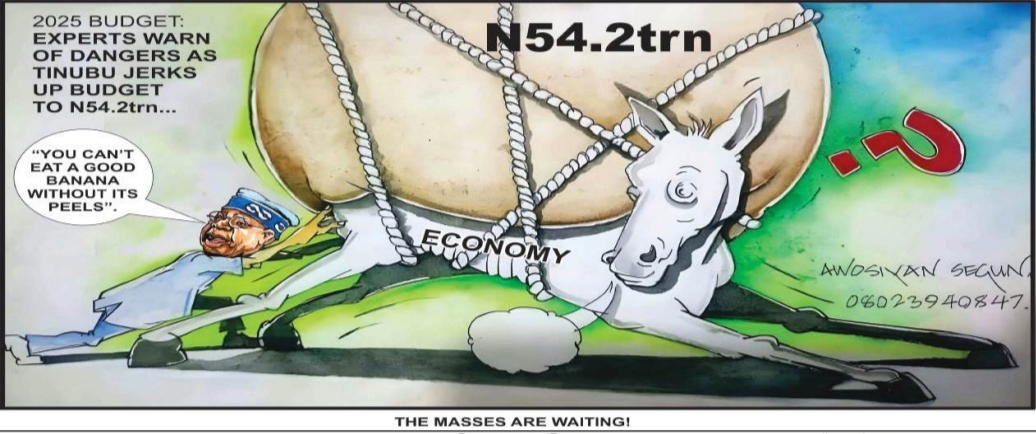
Category: Economy
-

Loan controversy: Onasanya storms court to clear name
In a determined effort to prove his innocence and clear his name, the former group managing director of First Bank, Dr. Bisi Onasanya, yesterday, appeared before Justice Chukwujekwu Aneke, at the Federal High Court, in Lagos.
Onasanya, alongside former First Bank Chairman Oba Otudeko; a Director at Honeywell Group, Soji Akintayo, and a firm, Anchorage Leisure Limited, is refuting allegations of fraud related to a commercial loan transaction at the bank during his time as the Group Managing Director.
Onasanya’s appearance aligns with the commitment made by his lawyer, Adeyinka Olumide-Fusika, SAN, when the matter first came up in court on January 20, 2025.
Another counsel for Onasanya, Olasupo Shashore, SAN, argued that although the former banker is determined to defend his innocence and clear his name, he aligns with the argument of Otudeko’s lawyers that the court should first hear the preliminary application challenging its jurisdiction before proceeding with the case.
Chief Wole Olanipekun, SAN, who is the lead counsel for the 1st defendant (Otudeko), told the court the case is civil in nature because it concerns a bank-customer relationship and should not be treated as a criminal matter by the court.
Ade Adedeji, SAN, counsel to the 4th defendant, Anchorage Leisure Limited, supported Chief Olanipekun (SAN), stating that the Economic and Financial Crimes Commission (EFCC) seemed determined to harass and intimidate his clients, despite the loan being fully repaid since 2017 and all parties having agreed to close the matter.
“We filed a preliminary objection, but the EFCC has yet to reply. The loan, which is the subject of prosecution, has long been repaid since 2017, when the EFCC initially waded into the matter. There is clear evidence of repayment available. The continued pursuit of this case by the EFCC amounts to nothing but witch-hunting, intimidation, and harassment of the defendants. It is baffling why a matter that was resolved many years ago is suddenly being resurrected.”
He said an application dated February 10, 2025 had been made, requesting the court to quash or decline jurisdiction over counts 1 to 10, alleging abuse of judicial process and a lack of prima facie evidence.
EFCC Prosecutor Rotimi Oyedepo, SAN, countered, stating that the allegations in the 13-count charge stemmed from a detailed investigation.
Following arguments from both parties, Justice Aneke adjourned the case to March 17, 2025, for ruling on the matter of jurisdiction.
Olumide-Fusika (SAN), counsel to Onasanya, urged the court to allow his client to return home and appear in court on the next adjourned date, stating that Onasanya had complied with the earlier assurance by presenting himself before the court as a mark of respect for the judicial process. Justice Aneke granted the request, permitting Onasanya to go home and return for the next hearing on the adjourned date.
Related News
Unical: No nude photographs were found in suspended professor’s phones, forensic analyst tells court
Otudeko, Onasanya’s lawyers reject EFCC’s case, argue for dismissal; ruling due March 17
Court orders forfeiture of Keystone Bank controlling share to FGIt would be recalled that Olumide-Fusika had, at the first sitting, condemned the manner in which the case had been handled, accusing the EFCC of subjecting his client to a ‘media trial’
-
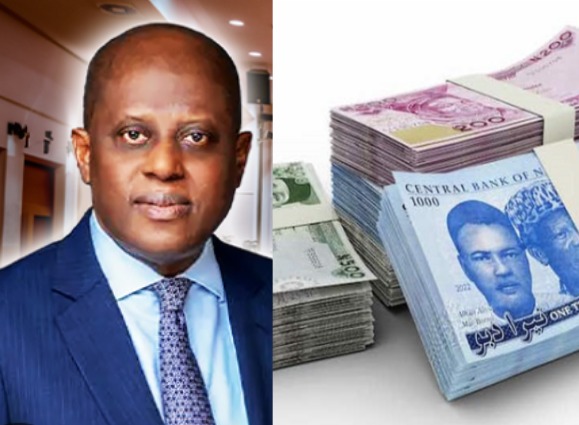
CBN to sanction bankswith ATM withdrawal limit below N20,000
The Central Bank of Nigeria, CBN, has threatened to sanction banks that limit Automated Teller Machines (ATM) withdrawal to less than N20,000 per transaction.
The apex bank disclosed this in a document addressing concerns over the reviewed fees on ATM withdrawal.
Recall that CBN on Tuesday increased ATM transaction withdrawal fees, saying, from March 1st, bank customers will pay N100 charge for every N20,000 withdrawal from the on-site ATM of other banks.
The CBN in a circular to banks and other financial institutions, the CBN said, “ATM Transaction Fees On-Us for customers withdrawing at the ATM of the customer’s financial institution in Nigeria with No charge.
“Not-On-Us for withdrawal from another institution’s ATM in Nigeria; On-site ATMs will attract a charge of N100 per N20,000 withdrawal.
“Off-site ATMs will attract a charge of N100 plus a surcharge of not more than N500 per N20,000 withdrawal.
“The surcharge, which is an income of the ATM deployer/acquirer, shall be disclosed at the point of withdrawal to the consumer.
“International Withdrawals (per transaction) whether debit/credit card: Cost Recovery – exact charge by international acquirer.
“Furthermore, the three free monthly withdrawals allowed for Remote-On-Us (other bank’s customers/Not-On-Us consumers) in Nigeria under Section 10.6.2 of the Guide shall no longer apply.”
However, following widespread concerns over the limit on ATM cash withdrawal by banks, the apex and yesterday released a list Frequently Asked Question, FAQ, to clarify implementation of the new charge.
Related News
CBN to sanction banks with ATM withdrawal limit below N20,000
CBN says ATM withdrawals less than N20,000 also attract an N100 fee
Shehu Sani knocks CBN over increase in ATM chargesThe CBN noted that the charges for withdrawals made from other banks on-site and off-site ATMs are based on banks allowing customers to withdraw up to N20,000 per transaction.
CBN said: “The fees are based on banks allowing customers to withdraw up to N20,000 per transaction. Any bank that compels a customer with sufficient funds in his/her account to withdraw less than N20,000 per transaction against the customer’s desire for a higher sum would be contravening this regulation’s spirit and sanctioned appropriately.
“Consumers that are denied the right to withdraw up to N20,000 per transaction are encouraged to file a complaint with the CBN using cpd@cbn.gov.ng.”
The regulator also explained that banks can not charge more than the stated fees, but a bank can charge a lower amount depending on its cost structure, among other things.
“The charges and surcharges are capped. Thus, banks and other financial institutions are not allowed to charge more than the fees prescribed in the circular.
“Note also that though the surcharge per transaction is capped, there is flexibility for a bank to charge a lower amount depending on its cost structure and business development drive.
To avoid paying ATM transaction fees, the apex bank said: “You should withdraw money from your bank’s ATM (On-Us transaction) to avoid the transaction fees.
“Additionally, limiting your use of off-site ATMs is advisable to minimise the surcharge.
“Further, consumers can explore other payment channels such as mobile apps, POS devices for payments, etc.”
-
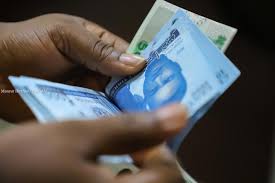
Klak launches cash flow management platform for small businesses
Klak, a leading B2B SaaS provider, has launched its innovative cash flow management and finance automation platform designed to help small and medium-sized businesses (SMBs) streamline their financial operations and optimize cash flow.
The company explained that this new solution aims to address common challenges in B2B payments, improve financial visibility, and reduce time spent on manual financial tasks.
Everyday financial and treasury operations are manual, time-consuming, and complex. Tasks like monitoring a company’s cash position in real-time across multiple legal entities, regions, financial institutions, ledgers, and payment gateways are extremely labor-intensive and time-consuming.
“The fragmented data caused by a lack of communication between the numbers of banks, payment processors, accounting softwares, ERPs, and databases that make up a company’s financial stack is also crippling, causing limited visibility into a company’s cash flow. Not to mention the complexities involved in month-end reconciliation process across multiple banks and entities, as finance teams are struggling to manually reconcile the sheer volume of incoming and outgoing transactions, and are facing an increased risk of financial losses and an inability to pass audits.
“The finance and treasury teams are ultimately in charge of their company’s financial health and bear the weight of the world on their shoulders. Still, they don’t have access to the tools and information needed to make timely, mission-critical decisions.
“We have built Klak as an “all-in-one finance automation platform” for companies working with multiple banks, managing liquidity, offering credit sales through invoices, and reconciling an immense number of transactions”, said the CEO, Seun Aygebusi.
Klak connects with local and international banks, integrates with existing systems like accounting softwares (e.g QuickBooks Online, Sage Business Cloud Accounting), Enterprise Resource Management softwares (e.g. Microsoft Dynamics 365 Business Central, Oracle NetSuite, Odoo), payment processors (e.g. Paystack, Flutterwave), and mobile mobile accounts to centralize financial data into one dashboard, and provide real-time cashflow analysis that represents the true picture of a business’s financial health.
“Klak functions as an add-on to your ERP, automating your bank reconciliation process, helping you complete reconciliation in minutes not days, improving data accuracy, eliminating errors, leakages, and headaches associated with manual reconciliation process.
-
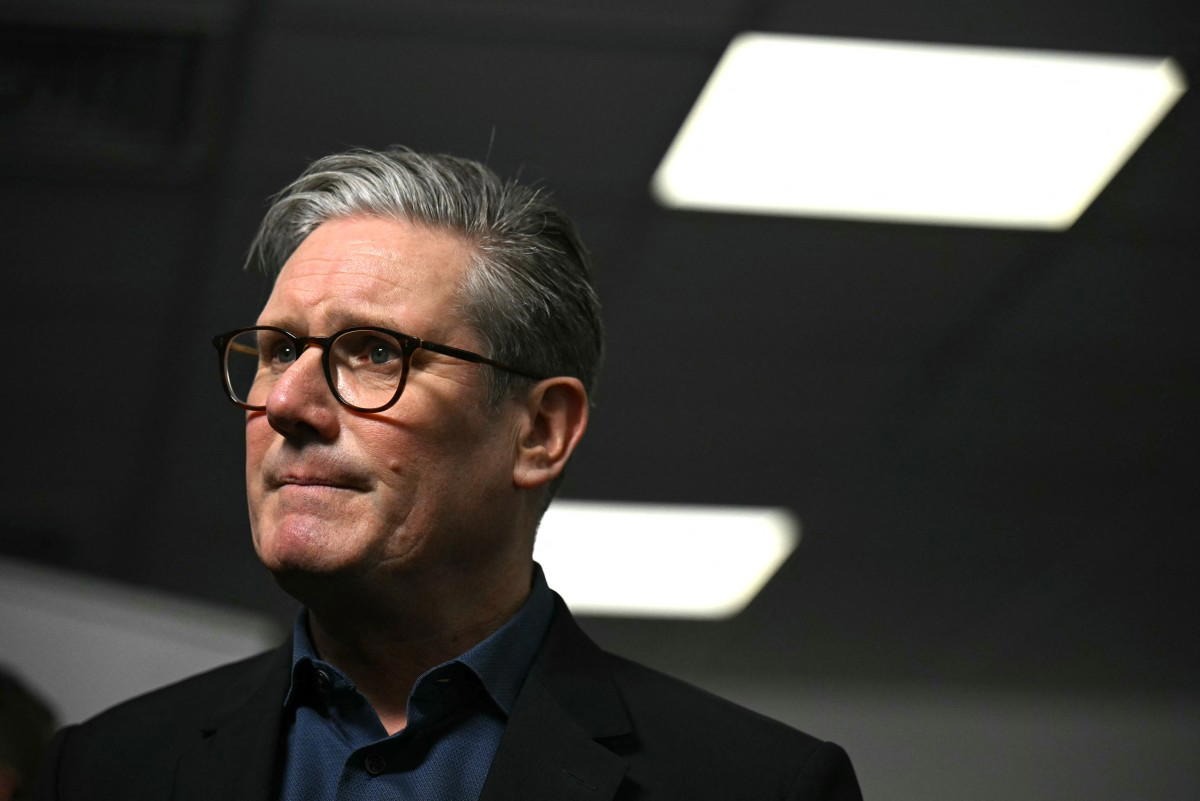
UK economy picks up, boosting govt amid US tariffs
Britain’s economy picked up at the end of last year, official data showed Thursday, relieving some pressure on the Labour government as the country faces up to US tariffs.
Gross domestic product expanded 0.1 percent in the October-December period after zero growth in the third quarter of 2024, the Office for National Statistics (ONS) said in a statement.
Analysts’ consensus forecast was for the UK economy to have contracted slightly in the fourth quarter.
The data hands a reprieve to the government of Prime Minister Keir Starmer which has put growing the UK economy at the top of its mission since Labour won a general election in July after 14 years in opposition to the Conservatives.
The economy had struggled to grow during its first few months in office as inflation remained elevated.
The Bank of England last week halved its forecast for British growth this year, saying GDP would now grow by only 0.75 percent in 2025, blaming global risks amid tariffs on imports into the United States unleashed by President Donald Trump.
That would mark a slowdown on growth of 0.9 percent last year, according to ONS data Thursday, which added that the economy expanded 0.4 percent in December.
“The economy picked up in December after several weak months, meaning overall the economy grew a little in the fourth quarter,” noted Liz McKeown, director of economics at the ONS.
“Across the quarter, growth in services and construction were partially offset by a fall in production,” she added.
– Tariffs threat –
Reacting to the latest figures, finance minister Rachel Reeves said she was determined to help grow the UK economy, in large part by easing regulation on building new infrastructure.
“For too long, politicians have accepted an economy that has failed working people,” she said in a statement.
Related News
Trump blames Biden for unexpected uptick in US inflation
Trump to impose new 25% tariff on US steel, aluminum imports
Over 600 arrested for working illegally in UK“After 14 years of flatlining living standards, we are going further and faster through our plan for change to put more money in people’s pockets,” Reeves added.
Her plans could be scuppered, however, by Trump’s tariffs.
Britain on Tuesday said it was “engaging” with the United States on the detail of the president’s steel tariffs, in contrast to firm responses by Canada and the European Union.
Seeking to keep Britain’s closest ally onside, Starmer told parliament Wednesday:
“The US and the UK share a strong and balanced trading relationship, we invest hugely in each other’s economies and we will continue to work closely with President Trump to boost growth and to create jobs.”
-

Naira down to N1,570/$ in parallel market
The Naira yesterday depreciated to N1,570 per dollar in the parallel market from N1,560 per dollar on Tuesday.
But the Naira appreciated to N1,513 per dollar in the Nigerian Foreign Exchange Market (NFEM).Data published by the Central Bank of Nigeria, CBN, showed that the indicative exchange rate for the naira fell to N1,513 per dollar from N1,513.1 per dollar on Tuesday, showing a 10 kobo appreciation for the naira.
Consequently, the margin between the parallel market and NFEM rate widened to N57 per dollar from N46.9 per dollar on Tuesday.
-
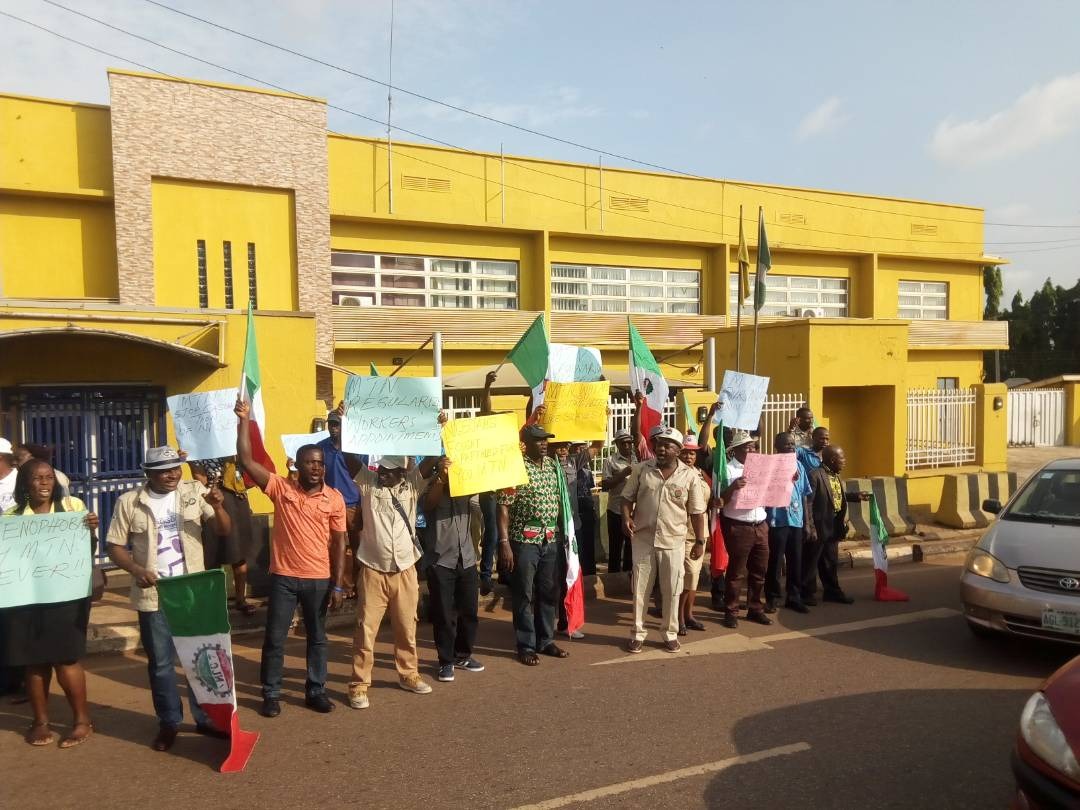
Telecoms tariff hike: NLC fumes, gives March 1 alert to shut telecoms services
LAGOS — The Nigeria Labour Congress, NLC, has expressed outrage over the hike in tariffs by telecommunications companies, despite an earlier agreement reached with the Federal Government and the Nigerian Communications Commission, NCC, and demanded immediate reversal of the increase to avoid unpleasant consequences.
However, the operators are not taking any of NLC’s threats, warning that labour’s actions would amount to a treasonable felony.
Recall that the Federal Government and NLC had about two weeks ago, emerged from a meeting convened by the former to see how the price hike could be reduced from the proposed 50 %.
A 10-man committee, comprising five members from each of the two parties, was constituted and given two weeks to further deliberate on the issue before a decision was taken.
The two-week deadline given to the committee ends this week but some of the telecommunications companies have already effected a hike of 50% hike in data.
According to NLC, “if the telecommunications companies fail to revert to the old tariff by the end of February 2025, a total shutdown of their operations nationwide will commence from March 1, 2025.”
To show its seriousness, the labour movement declared that as a first step in resisting the arbitrary tariff hike, it directed that from Thursday, February 13, 2025, (today) workers and other willing citizens should boycott the services of MTN, AIRTEL, and GLO daily between 11:00 am and 2:00 pm, with effect from Thursday, February 11 till end of February 2025.
Leaders of the NLC in a communique at the end of a Central Working Committee, CWC, meeting in Lokoja, Kogi State, on Tuesday, urged workers and citizens to suspend purchase of data from the telecommunications companies.
The communique, signed by the President and General Secretary of Congress, Joe Ajaero, and Emma Ugboaja, respectively, directed state councils and industrial union affiliates to commence immediate sensitization and mobilization of their members and the general public within their jurisdictions.
The communique read: “The CWC of the NLC was convened in Lokoja, Kogi State, on February 11, 2025, to deliberate on pressing national issues, including the 50 per cent telecommunications tariff hike, the proposed Tax Reform Bills, and to roll out the Compressed Natural Gas, CNG-powered buses for the North Central zone of Nigeria.
Related News
NLC demands reversal of telecom tariff hike, threatens shutdown
MTN data: Reps ask FG to halt impending hike in telecom tariffs
Tariff hike: Medical, health workers union directs members to comply with NLC directives
Tariff hike“The CWC received with grave concern the news that telecommunications companies have commenced implementation of a 50 per cent tariff hike on February 11, despite an earlier agreement reached with the Federal Government and the Nigerian Communications Commission, NCC. “It was recalled that a 10-man committee had been constituted to deliberate on the matter within two weeks and report back before any final decision would be made on the new telecom tariff structure.
“The CWC strongly condemns this action by the telecommunications companies, describing it as a betrayal of trust, an affront to the principles of negotiation, and a direct slap on the government and its institutions and a disdain for Nigerian people.
“CWC-in-session believes that this is a further demonstration of regulatory capture and impotence in the midst of corporate onslaught and the continuing abandonment of workers and masses to corporate fat cats by the government.
“This unwarranted and premature tariff hike demands an immediate response from our collective resolve since the government clearly favours the rich against the people.Resolutions
“The CWC demands an immediate reversal of the tariff hike, which took effect on February 11, and insists that the companies revert to the previous tariff until the committee completes its deliberations and reaches a conclusive agreement.
“As a first step in resisting this arbitrary tariff hike, the CWC has directed that, beginning Thursday, February 13, 2025, (today), Nigerian workers and other willing citizens shall boycott the services of MTN, AIRTEL, and GLO daily between 11:00 am and 2:00 pm until the end of February 2025.
“All workers and citizens are urged to suspend the purchase of data from these companies. We also demand the repatriation of all funds siphoned out of the country by these companies.
“If the telecommunications companies fail to revert to the old tariff by the end of February 2025, a total shutdown of their operations nationwide will commence from March 1, 2025.
“All NLC state councils are directed to commence immediate sensitization and mobilization of their members and the general public within their jurisdictions.
“All NLC affiliate unions are requested to mobilize their members across the country to observe electronic silence during the designated hours.
“We implore all our civil society allies and other interested stakeholders are to join us in making this action effective.”
Tax reform bills
On the Tax reform bills, the communique stated: “The CWC also reviewed the ongoing discussions around the Tax Reform Bills being considered by government. While acknowledging the need for fiscal reforms, the Congress insists that any tax policies must be designed to alleviate the burdens on Nigerian workers and not worsen the existing economic hardship.
“The NLC shall engage with relevant authorities to ensure that tax reforms are fair, equitable and worker-friendly.
“The Nigeria Labour Congress remains committed to defending the rights and welfare of Nigerian workers and citizens. The CWC calls on all Nigerians to unite in this struggle against exploitative economic policies and to actively participate in the outlined actions to demand justice and fairness in telecommunications, taxation, and transportation policies.”
TUC
Efforts to speak with the Trade Union Congress of Nigeria, TUC, on its position over the NLC planned action was unsuccessful at press time yesterday.
But it was gathered that the TUC leaders, along side other stakeholders in the labour sector, were holding a meeting with the Director-General of the International Labour Organisation, ILO, Gilbert Houngbo.
However, TUC had on February 6, at its National Administrative Council, NAC, endorsed the earlier decision by NLC on the issue.
“The NAC also examined the planned 50 per cent increase in telecom tariffs and fully endorses the position of our sister labour centre, the Nigeria Labour Congress, NLC, in rejecting this move.
“The decision to increase tariff was made without proper consideration of its economic impact on the masses.
There must be meaningful engagement to explore alternatives and ensure that any policy adjustments are fair, sustainable, and do not further burden already struggling citizens,’’ the TUC had stated.
Telcos talk tough, say labour gravitating towards treason
Reacting to NLC’s threat last night, the operators said it amounted to a treasonable felony and asked the Federal Government to be on red alert, considering the security breach such action would cause if carried out.
But the National Association of Telecom Subscribers in Nigeria, NATCOMS, berated the NCC for allowing telcos to do whatever they liked, allegedly undermining core industry stakeholders.
NATCOMS said the only way the regulator could redeem its image was to sanction the telecom operators that activated the increment when the NLC, telecom stakeholders and operators were scheduled to have a conversation on it.
However, speaking to Vanguard, a senior official of the Association of Licensed Telecom Operators in Nigeria, ALTON, said labour was taking too far whatever oversight functions it had on such issues.
According to a source, “what does Labour want from the operators? Do we operate in isolation of the Nigerian economy? What did Labour do with the removal of fuel subsidy, the increment in pump price of petrol, flotation of the naira and the recent hike in bank charges?
“Why is it that Labour is not looking at the ballooning operational costs in the industry, instead it is interested in shutting down telcos.
“Let it carry out that threat and see how it will shut down major facilities that keep Nigeria’s security system going. Then, their leaders will be arrested for treasonable felony.”
The source said all the operators and not only MTN Nigeria, as being touted by many people, were activating the data price adjustment, pleading that MTN should not be unjustly harassed.
On his part, President of NATCOMS, Chief Deolu Ogubanjo, accused the NCC of standing aloof while operators take the subscribers by the jugular.
He said: “The NLC has every right to be angry. We, as NATCOMs, are too. Although, we do not support the shutting down of telcos due to far-reaching implications, but something must happen to show the telcos they have to respect the voice of the people.
“The NLC and other stakeholders, including us, were scheduled to meet the NCC and the telcos in a week’s time and instead of waiting for the meeting which would have determined an amicable resolution of the issues, the telcos went berserk with data price hike.
‘’Where was the NCC? It is a disgrace and NCC must sanction them now to redeem image. That’s our position.’’
However, justifying the tariff increase the telcos said the argument that telecom services should remain artificially cheap because the cost of food and other essentials had risen was flawed.Chairman of ALTON, Engr Gbenga Adebayo, said: “Telecommunications cannot be used as a subsidy for economic hardship in other sectors. If prices remain unsustainably low, service quality will deteriorate, and ultimately, the industry will collapse.
“The government must take responsibility for providing economic relief, rather than expecting telecom operators to absorb rising costs at their own expense.
“The proposed 50% tariff adjustment is not merely about profitability, it is about keeping the networks operational. Beyond sustaining existing services, it is also about expanding coverage to rural areas where millions still lack access to telecom services.
“Investments in infrastructure will empower rural communities, creating new income opportunities and improving overall economic efficiency. As these communities gain connectivity, their contributions to the national GDP will increase.’’
-
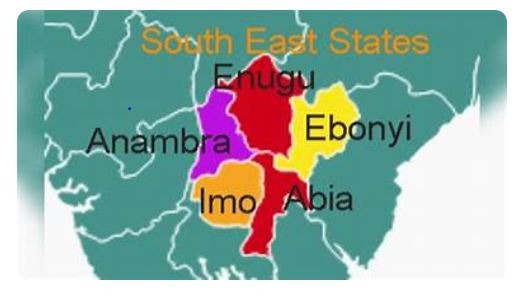
S’East commission targets $200bn economy by 2035 — Okoye
The Managing Director and Chief Executive Officer of the South East Development Commission, Mr Mark Okoye, has reiterated the commission’s commitment to championing economic growth and infrastructure development in the South East region.
In his inaugural address, Okoye thanked President Bola Tinubu for the opportunity to serve the people even as he saluted the courage of the 10th National Assembly in passing the South East Development Commission Bill.
He also commended the Senate Committee on Regional Commissions for their role in screening and confirming the board.
Following the official inauguration last week, the commission is now set to commence the execution of its mandate of rebuilding critical infrastructure damaged during the Nigerian Civil War and addressing broader developmental challenges in the region.
In a statement by the media unit of the SEDC made available to journalists, yesterday, Okoye highlighted the need for development, citing World Bank estimates that Nigeria requires an annual investment of $100–$150 bn to close her infrastructure gap, with at least $10bn needed to transform the South East alone.
He added that the region “Faces significant challenges, including over 2,500 active erosion sites, high unemployment rates, and a difficult investment climate but we are determined to drive infrastructural development in the region.”
These challenges notwithstanding, the SEDC boss declared a goal to grow the South East economy to $200 billion by 2035, in line with President Tinubu’s vision of a $1 trillion national Gross Domestic Product.
He pledged the readiness of the commission to collaborate with state governments, the private sector, and development partners to drive inclusive growth.
The statement quoted Okoye as saying: “As part of its immediate strategy, the commission will engage with state governments to align initiatives with regional priorities and the Renewed Hope Agenda; the private sector to secure investments and create job opportunities.
“We will partner academia and research institutions to ensure evidence-based policymaking and workforce development; traditional and religious leaders to strengthen grassroots engagement and social cohesion and civil society organisations to promote accountability and inclusivity.“
Building on past regional economic blueprints, including the plans of Dr. Michael Okpara, Okoye said the commission will focus on “security and investment climate, technology and innovation as well as agriculture and industrialisation among others.
Related News
Senate proposes N10bn fund for capital market investor education
Nigeria’s oil output excluding condensate rises by 4% to 1.737m bpd
Ondo monarch to illegal miners: Don’t turn our community into battlefieldHe further assured Nigerians, particularly those of South East extraction that SEDC would prioritise action over rhetoric, with every project aligned to a clear roadmap and measurable impact.
“In the coming months, SEDC will launch several initiatives, with a forthcoming interactive website to enable public engagement.
“We have a unique opportunity to transform the South East into an economic powerhouse. Together, let us usher in a new era of regional development and economic transformation, “ he charged relevant stakeholders.
-
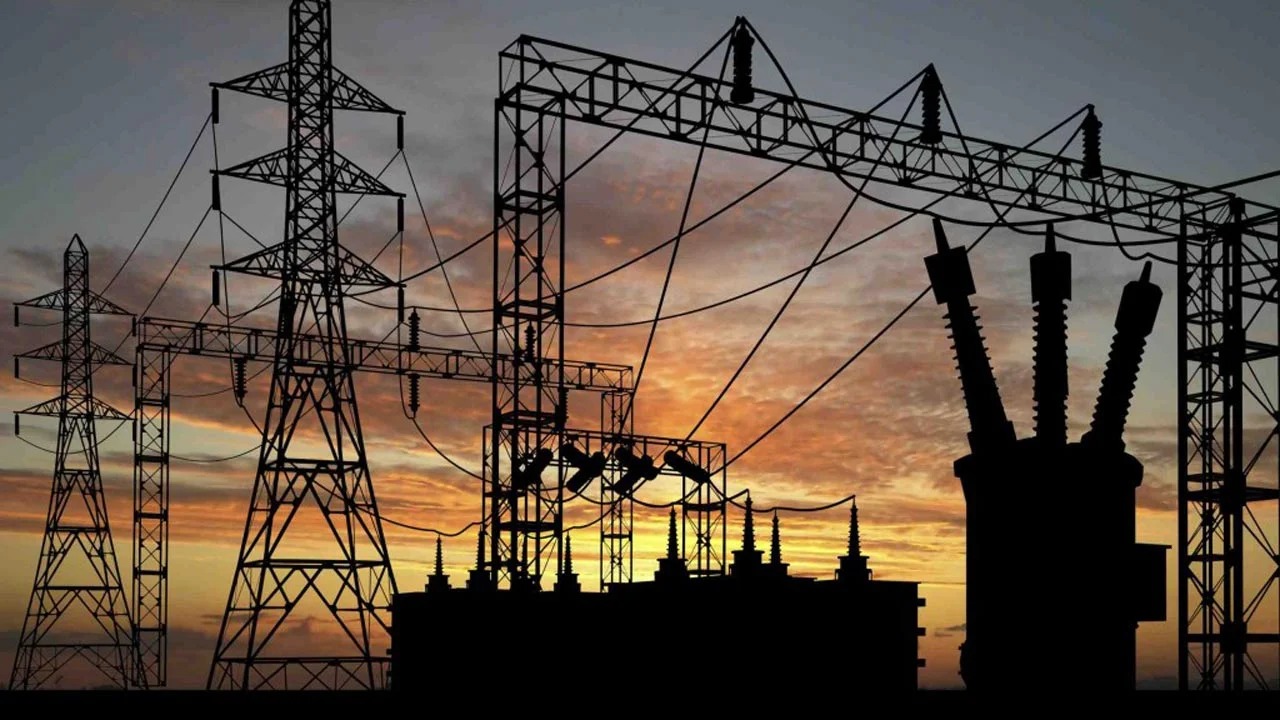
Just In: National grid suffers collapse
The nation’s electricity grid collapsed moments before noon on Wednesday, according to the X handle created for reports on the grid @NationalGridNg.
“There was a ‘GRID DISTURBANCE’ before noon today. Parts of the country experienced outages. Further information shortly,” the post read.
Ikeja Electricity Distribution Company reported on X that the system outage happened at 11:34 am.
“Please be informed that we experienced a system outage today 12th February 2025 at 11:34hrs affecting all our feeders.
“Restoration of supply is ongoing in collaboration with our critical stakeholders,” the company wrote.
-
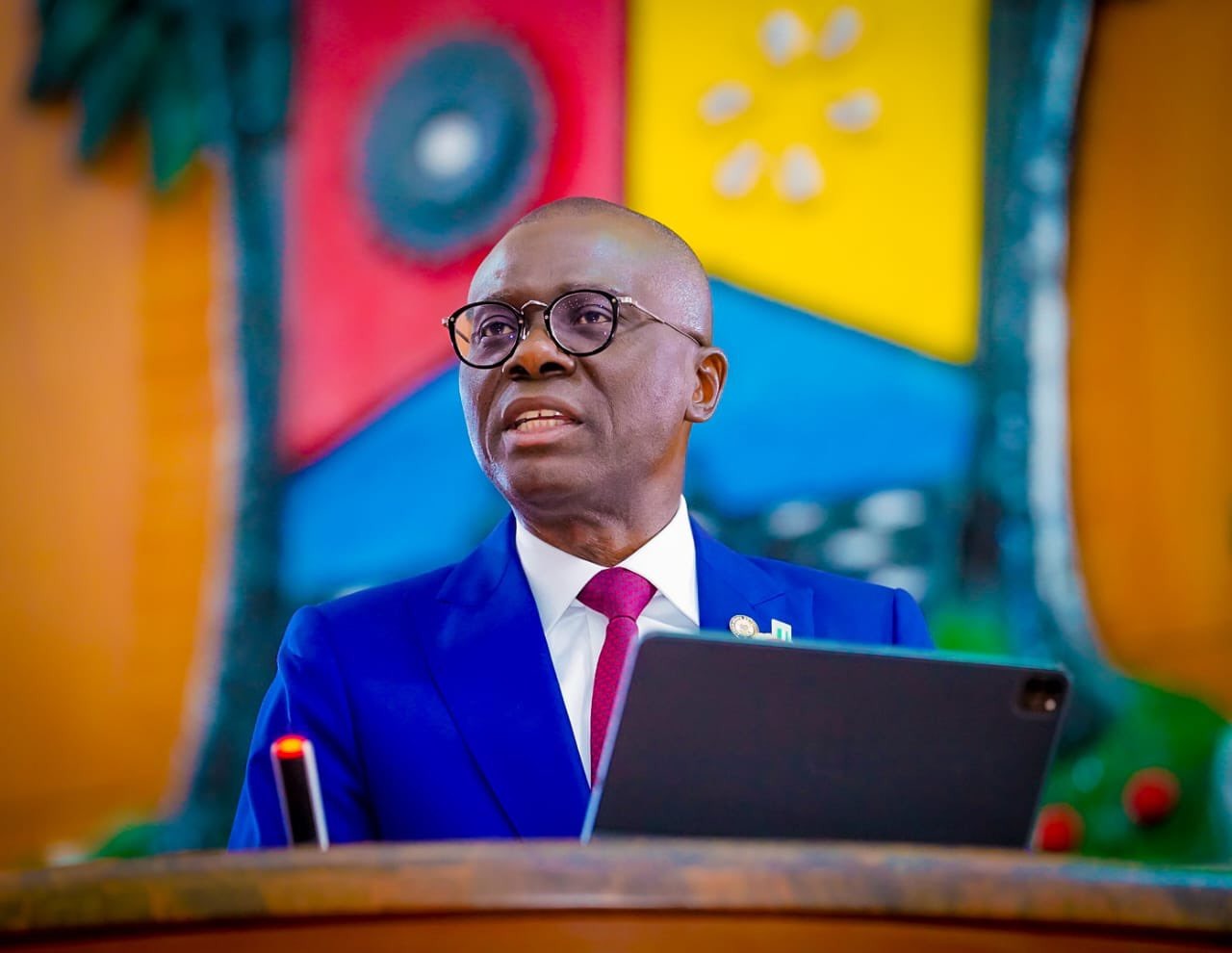
Lagos targets 8,500mw to meet 12,000mw industrial electricity supply
Lagos State Government said with a power demand of 12,000 megawatts electricity and a current supply of just 3,500MW, it aimed to bridge a shortage of 8,500MW supply for its industrial growth.
However, Lagos has a startup ecosystem valued at over $9 billion, and the State has produced some of Africa’s most successful unicorns.
The State Commissioner for Commerce, Cooperative, Trade and Investment, Mrs Folashade Ambrose, disclosed this during the Lagos State Industrial Policy Consultative Assembly and Validation Workshop in Ikeja.
Representatives of Ministries, Departments, and Agencies, members of the Organized Private Sector, and Chambers of Commerce attended the event.
According to the Commissioner, the validation of the Lagos State Industrial Policy (2025–2030) is a defining moment that signals readiness to elevate Lagos into a hub of industrial excellence where businesses can thrive, investments can flourish, and job creation can be maximized.
Ambrose says, “Since energy security remains a top priority, the State is pioneering renewable energy investments, including solar mini-grids, waste-to-energy initiatives, and gas-to-power projects.
“Also, the state government is actively working to decentralize electricity generation through Independent Power Projects (IPPs) to support industrial zones and commercial hubs.
She added, “Today marks a significant milestone in our collective journey towards transforming Lagos into Africa’s premier industrial hub.
“Your presence here underscores the commitment we all share in fostering a vibrant and sustainable industrial landscape for Lagos State — one that is resilient, inclusive, and positioned to compete on a global scale.
“Lagos State has long been the cornerstone of Nigeria’s economic advancement, acting as the gateway to trade, commerce, and industrialization for the nation and beyond.
“Our State’s dynamism is a reflection of the entrepreneurial spirit of our people, the innovation embedded in our industries, and the strategic foresight of successive administrations in shaping a business-friendly environment.
“However, as the world transitions towards a new era of economic modernization driven by technology, sustainability, and global competitiveness, it is imperative that we recalibrate our industrial policies to align with both domestic imperatives and international best practices.
“This consultative assembly is not just another meeting; it is a call to action. It is a platform for us to deliberate on policies that will define the future of Lagos’ industrial sector, ensuring that we are not just keeping pace with change but actively driving it.
“The importance of industrialization cannot be overstated. A robust industrial sector is fundamental to achieving economic diversification, reducing dependence on imports, fostering innovation, and accelerating wealth creation.”
Ambrose stressed that the State is a major financial hub, hosting the headquarters of Nigeria’s largest banks, insurance companies, and investment firms, saying, “The Lagos International Financial Centre is being positioned as a strategic global financial hub, further solidifying Lagos’ place in the international investment ecosystem.”
She added, “Lagos is the tech capital of Africa, accounting for over 60 percent of Nigeria’s technology startups and housing the continent’s largest innovation clusters, including Yaba’s Silicon Valley.
“With the rise of Fintech, blockchain, artificial intelligence, and e-commerce, Lagos has become a global hotspot for technology investments.
“The startup ecosystem is valued at over $9 billion, and the State has produced some of Africa’s most successful unicorns, including Flutterwave, Paystack, and Opay
“The government’s Smart City initiative and investments in broadband expansion, digital literacy, and e-government services are creating a digitally inclusive society, fostering innovation, and attracting venture capital to Lagos’ thriving tech sector.
“Lagos is the industrial backbone of Nigeria, hosting over 70% of the country’s manufacturing activity. The State’s industrial zones — including the Lekki Economic Zone — are home to multinational manufacturing firms in key sectors such as automotive, pharmaceuticals, food processing, construction materials, and petrochemicals.
“With the Lagos Industrial Policy (2025–2030), we aim to deepen industrialization by leveraging public-private partnerships (PPPs), creating dedicated power solutions for industries, and improving logistics infrastructure to reduce production costs.”
Speaking on real estate and housing, the commissioner stated, “Lagos’ rapid urbanization has fueled an ever-growing demand for housing, commercial properties, and transport infrastructure.
“The State’s real estate sector presents an investment opportunity valued at over $40 billion, with a current housing deficit of 3 million units.
“In response, the government is driving affordable housing projects, urban renewal programs, and private sector-led housing developments to bridge the gap.”
She highlighted some of the infrastructural expansion, including the Lagos Rail Mass Transit (Blue and Red Lines), 4th Mainland Bridge, Opebi-Mende Link Bridge, and major road rehabilitation project, which, according to her, is positioning Lagos as a truly modern, smart, and resilient city.
“These projects will significantly improve mobility, reduce congestion, and enhance the ease of doing business in the state,” Ambrose added.
In addition, the commissioner noted, “With a power demand of 12,000MW and a supply of just 3,500MW, Lagos is targeting 8,500mw to meet up with industrial needs as energy security remains a top priority.
“Lagos is pioneering renewable energy investments, including solar mini-grids, waste-to-energy initiatives, and gas-to-power projects.
“The state government is actively working to decentralize electricity generation through independent power projects (IPPs) to support industrial zones and commercial hubs.”
She reiterated that the Lagos State Development Plan (LSDP 2052) sets ambitious goals to make Lagos a globally competitive industrial hub, a technology-driven economic powerhouse, a sustainable and climate-resilient mega city, and a financial and commercial epicenter for Africa.
“With these strategic initiatives in place, Lagos is on track to become Africa’s most prosperous and industrially advanced State. The validation of our Industrial Policy (2025–2030) today is crucial in actualizing these aspirations.”
